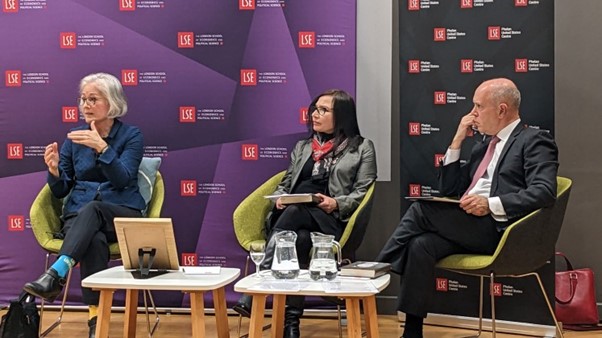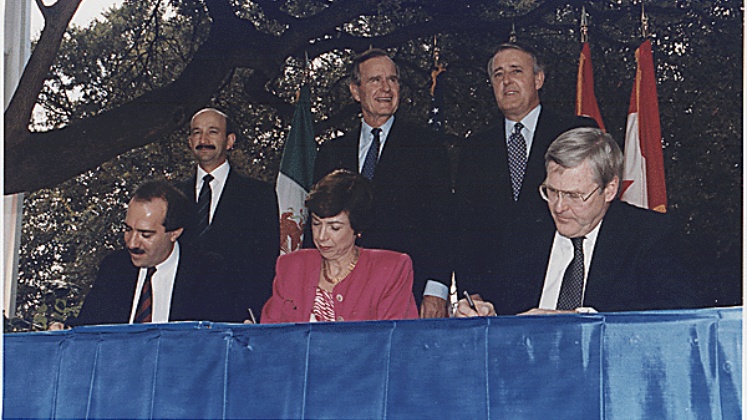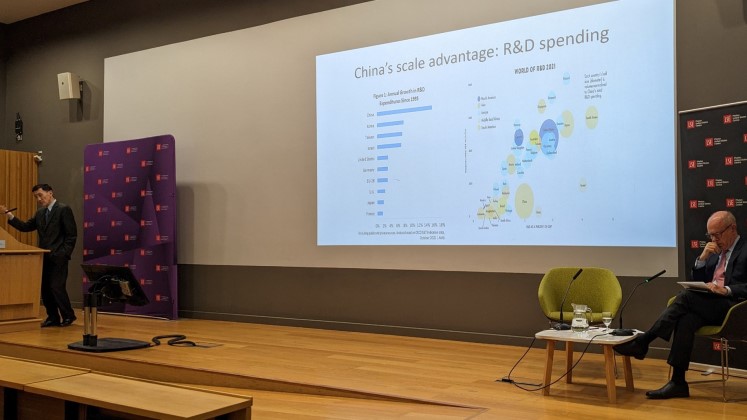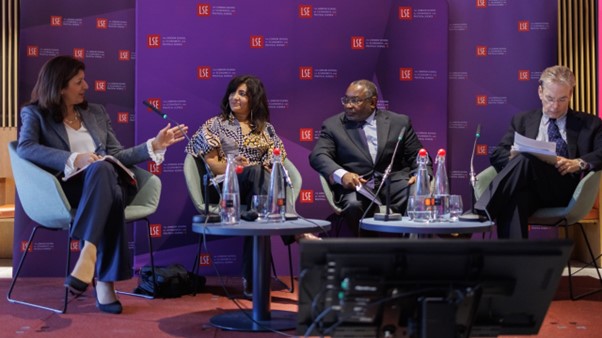 On Tuesday 14 March the Phelan US Centre hosted the in-person and online Wenger Distinguished Lecture, ‘Waning Globalisation’, with Pinelopi Goldberg, the Elihu Professor of Economics at Yale University and former Chief Economist of the World Bank Group. Olivia Otts reviews the core arguments presented in the lecture and Q&A segment.
On Tuesday 14 March the Phelan US Centre hosted the in-person and online Wenger Distinguished Lecture, ‘Waning Globalisation’, with Pinelopi Goldberg, the Elihu Professor of Economics at Yale University and former Chief Economist of the World Bank Group. Olivia Otts reviews the core arguments presented in the lecture and Q&A segment.
Amid ebbing globalisation trends, Pinelopi Goldberg, the Elihu Professor of Economics at Yale University and former Chief Economist of the World Bank Group, delivered a Wenger Distinguished Lecture at the LSE on 14 March. Goldberg, who has a forthcoming book with MIT Press, The Unequal Effects of Globalization, began by noting that the world is not yet de-globalising, but ‘a slowdown is visible.’ This, she argued, is centred in ‘profound changes in policy and sentiment.’
Professor Goldberg highlighted China’s dual circulation strategy; the US and UK’s ‘reversal of liberalisation agendas;’ the US’s CHIPS and Inflation Reduction Acts; and the paralysis of the World Trade Organisation (WTO), among others, as profound policy changes. In terms of changes in sentiment, Goldberg argued that in the ‘new era,’ national security has become a ‘first order concern.’ She cited that ‘in 2018/19, the public still saw trade as beneficial to the economy’, but in 2022, concerns arose around ‘resilience, geopolitics, and re- and friend- shoring demands.’ She argued that the rest of the world is ‘not expressing desire to retreat from globalisation,’ with multilateral and regional agreements still in place, although the US, UK, and China are all ‘decoupling.’
Presenting three distinct phases of the trend, Goldberg began with the period from 2016 to 2020. She recalled there was a perception at that time that ‘trade with low-wage countries was hurting workers in advanced countries.’ Although there was a decline in global inequality, she argued, ‘this has come at the expense of increases in within-country inequality.’ She presented that there have been ‘growth benefits to top and bottom, but the middle has stagnated.’ Spatial effects, she contended, have been large and persistent. The impacts of this era, Goldberg argued, are more on rhetoric and uncertainty than on trade itself.
In the second phase, from 2020 to 2022, Goldberg presented evidence that ‘the world economy proved incredibly resilient.’ Using a ‘reed versus oak’ analogy – wherein a reed ‘bends but does not break,’ she presented that after the initial shock of the COVID-19 pandemic, trade went up ‘more than was predicted pre-pandemic.’ There are no good answers yet on how to operationalise resilience, she argued, but it is important to think about the concept ‘with reference to specific shocks’ – supply or demand, country or sector. She postulated from this phase that ‘if it were not for the invasion of Ukraine we may have gone back to normal.’
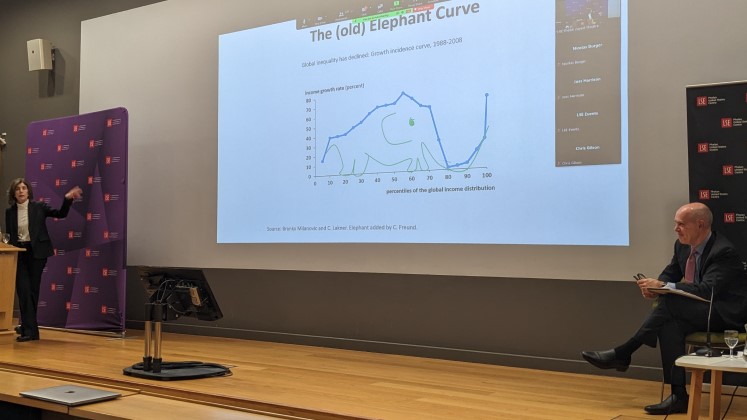
Goldberg contended that the 2022 invasion, exposing ‘the fragility of trade to international risk,’ was the catalyst for the third phase. Concerns for national security, she argued, are key characteristics of this period. European energy imports from Russia were given as an example of the ‘risk of excessive international specialisation.’ Main import sources are often ‘friendly’ countries, she explained, ‘because of trade restrictions and safety precautions.’ Friendliness, however, ‘is not constant over time.’
‘It is too early to see changes in the data,’ Goldberg concluded. However, in the context of the US’s policy on China, she quoted Edward Luce of the FT in stating that ‘a superpower declared war on a great power and nobody noticed.’ Recalling the ‘pre-belligerence period before World War Two,’ Goldberg noted that ‘on the economic side the future is highly uncertain.’ We are experiencing, she says, ‘…a new cold war with trade as a weapon’ and ‘history suggests reasons to be alarmed.’ Goldberg concluded by advocating – ‘Any policy that is justified by appealing to concepts that are not well defined or benchmarked, like resilience, or not easily verifiable by non-government agencies, like national security, should make academics and independent thinkers more generally highly uncomfortable!’
In the Q&A session, an Economics student from UCL asked if the return of industrial policy is a positive effect on innovation. Goldberg replied in part – ‘When properly implemented, and that’s a big when, it can contribute to addressing all these challenges. But, in terms of policy, this does not mean we declare a trade war between countries…’ However, she stated, ‘I am not opposed to industrial policy on principle.’ The event’s Q+A also covered questions around unaligned Global South countries, ways to reduce spatial inequality, and the formation of regional blocs.
Listen to a Ballpark podcast interview with with Professor Pinelopi Goldberg on Spotify
- Please read our comments policy before commenting.
- Note: This article gives the views of the author, and not the position of USAPP – American Politics and Policy, nor the London School of Economics.
- Shortened URL for this post: https://bit.ly/3lGSGNI


